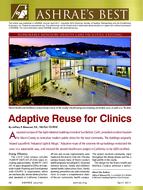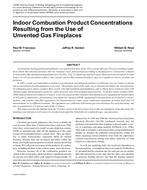This paper examines key issues in the management of health risks associated with the release of toxic air pollutants from laboratory exhaust stacks. Attention is focused on how risk analysis can influence the strategies employedin the design of exhaust stacks to achieve acceptable ~ dispersion of pollutants. The paperbegins with a review of risk management concepts useful in the analysis of laboratory exhaust emission hazards. A risk management decision model is ~ presented to provide a framework forfurther analysis. This decision model is applied to the ~ problem of selecting control strategies to reduce health risks from exposure to laboratory exhaust emissions. The important role of uncertainty in risk analysis is discussed, emphasizing how the structure of the risk management problem considered here results in the magnification of uncertainty. In particular, the problem of determining acceptable exposure levels for laboratory exhaust emissions is examined. An exposure assessment model is presented to show the interactions of numerousvariables relevant to exhaust stackdesign. Finally, some design alternatives worth considering for most laboratory exhaust systems are offered.
Citation: Symposium, ASHRAE Transactions, 1987, vol. 93, pt. 2, Nashville, TN
Product Details
- Published:
- 1987
- Number of Pages:
- 16
- File Size:
- 1 file , 1.9 MB
- Product Code(s):
- D-NT-87-25-1


